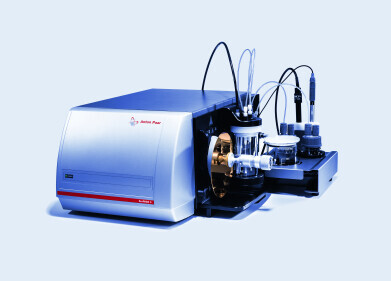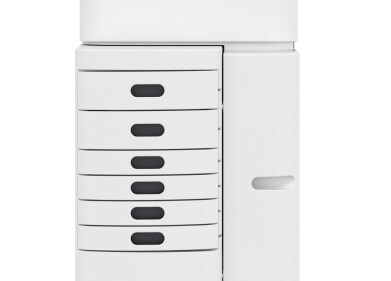Laboratory Products
How Do Cravings Affect Senses?
May 25 2019
New research from the University of Portsmouth suggests that morning coffee cravings aren't a myth. On the contrary, 'bean heads' are more sensitive to the enticing aroma of coffee and can recognise smaller amounts and detect its presence faster than their non-coffee drinking counterparts. Furthermore, as coffee cravings intensify, sensitivity to the aroma also heightens. For a team of olfactory researchers, the findings could unlock new ways of using aversion therapy to treat addictions that are associated with distinct smells, such as alcohol and tobacco.
The breakthrough study was led by Dr Lorenzo Stafford, an olfactory expert at the University of Portsmouth. Working from the Department of Psychology, Stafford and his colleagues discovered that higher caffeine intake is associated with an increase in the ability to detect the aroma of coffee.
"We also found that those higher caffeine users were able to detect the odour of a heavily diluted coffee chemical at much lower concentrations, and this ability increased with their level of craving," he adds. "So, the more they desired caffeine, the better their sense of smell for coffee."
Using coffee cravings to combat drug dependency
While it's no secret that scent-based drug cues can trigger substance cravings, the study is the first to suggest that cravings could be linked to a heightened ability to detect certain substances, from coffee and chocolate to cigarettes and alcohol.
"Caffeine is the most widely consumed psychoactive drug and these findings suggest that changes in the ability to detect smells could be a useful index of drug dependency," explains Stafford.
Scientists detect heightened sense of smell in caffeine addicts
The findings were published in the Experimental and Clinical Psychopharmacology and spotlight two experiments. The first involved 62 individuals divided into three groups – those who abstained entirely from caffeine, those who consumed moderate amounts of up to 3.5 cups a day and those who consumed four or more cups. Each person was then blindfolded and asked to distinguish between small amounts of coffee and blanks, which have no smell. Heavy coffee drinkers were not only able to detect weaker concentrations of coffee but were also much faster at identifying the aroma.
The second test saw 32 participants divided into coffee and non-coffee drinkers. When asked to complete an odour detection test featuring coffee scents, blanks and a non-food aroma, those who consumed caffeine were much more sensitive to the smell of coffee but were not any better at detecting the non-food odour than their caffeine-free counterparts. For Stafford, the results suggest that sensitivity to smell is intrinsically linked to cravings, a finding that could be used to treat drug use behaviours.
Coffee isn't the only substance with a unique aroma, with beer aficionados also able to detect subtle changes in taste and smell. For a closer look at how companies test and monitor the flavour compounds don't miss 'The Analysis of Flavours in Beer with ChromSync Software.'
Digital Edition
Lab Asia 31.2 April 2024
April 2024
In This Edition Chromatography Articles - Approaches to troubleshooting an SPE method for the analysis of oligonucleotides (pt i) - High-precision liquid flow processes demand full fluidic c...
View all digital editions
Events
Apr 25 2024 Istanbul, Turkey
Apr 28 2024 Montreal, Quebec, Canada
May 05 2024 Seville, Spain
InformEx Zone at CPhl North America
May 07 2024 Pennsylvania, PA, USA
May 14 2024 Oklahoma City, OK, USA


















